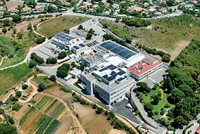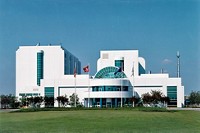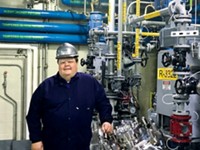Advertisement
Grab your lab coat. Let's get started
Welcome!
Welcome!
Create an account below to get 6 C&EN articles per month, receive newsletters and more - all free.
It seems this is your first time logging in online. Please enter the following information to continue.
As an ACS member you automatically get access to this site. All we need is few more details to create your reading experience.
Not you? Sign in with a different account.
Not you? Sign in with a different account.
ERROR 1
ERROR 1
ERROR 2
ERROR 2
ERROR 2
ERROR 2
ERROR 2
Password and Confirm password must match.
If you have an ACS member number, please enter it here so we can link this account to your membership. (optional)
ERROR 2
ACS values your privacy. By submitting your information, you are gaining access to C&EN and subscribing to our weekly newsletter. We use the information you provide to make your reading experience better, and we will never sell your data to third party members.
Outsourcing
WuXi STA breaks ground in Delaware, without drug chemicals
First phase of Chinese firm’s project will include only finished-drug production
by Rick Mullin
August 24, 2022
| A version of this story appeared in
Volume 100, Issue 30

WuXi STA, the small-molecule drugmaking arm of China’s WuXi AppTec, broke ground earlier this month on a pharmaceutical manufacturing facility in Middletown, Delaware.
The project, a 75-hectare campus announced last year, is a major push for WuXi STA into the US market, where the company currently operates a smaller facility in San Diego. The new facility received a $19 million grant from the state of Delaware and is expected to create approximately 500 jobs by 2026.
But the company’s plans in Delaware, at least for the first phase, no longer include production of active pharmaceutical ingredients (APIs)—the chemical hearts of small-molecule drugs—which were a key component of the facility when it was announced last year.
WuXi STA tells C&EN that the current scope of the project is “drug product development and manufacturing as well as packaging and distribution.” Drug product is an industry term for a formulated pill or injection.
“To me it sounds like they are reevaluating and looking at what they need, which might make sense,” says James Bruno, president of the consulting firm Chemical and Pharmaceutical Solutions. “It seems everything they are doing [in Delaware] is around drug product.”
Bruno notes that the company may not want the expense of adding API production in Delaware on top of other large investments. Last year WuXi STA acquired a drug product plant in Switzerland from Bristol Myers Squibb. And WuXi AppTec recently announced a $1.4 billion, 10-year project to build a research and manufacturing facility in Singapore. Various other sites, including the future Singapore plant, are options for API production, Bruno notes.
The demand for US-produced APIs, which reached a fever pitch at the height of the pandemic, may have decreased in urgency over the past year, a shift that could impact investment decisions, Bruno says. “I get a lot of clients telling me they’d like to [have API produced] in the US,” Bruno says. “But they’re willing to take Europe.”





Join the conversation
Contact the reporter
Submit a Letter to the Editor for publication
Engage with us on Twitter